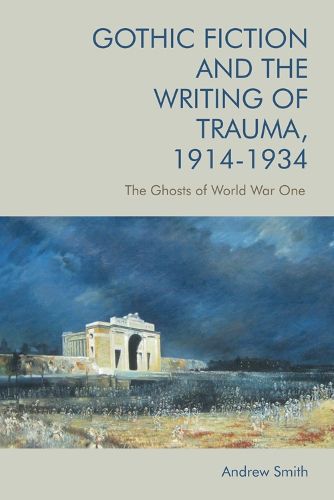Readings Newsletter
Become a Readings Member to make your shopping experience even easier.
Sign in or sign up for free!
You’re not far away from qualifying for FREE standard shipping within Australia
You’ve qualified for FREE standard shipping within Australia
The cart is loading…






This book examines how the representation of the ghost-soldier in literature published between19141934, both marks the presence of trauma and attempts to make sense of it. Andrew Smith examines short stories, novels, poems and memoirs that employ ghosts to reflect upon feelings of loss, paralleling the literary context with accounts of shell-shock which construe the damaged soldier as psychologically missing and therefore spectre-like. The author argues that literary and non-literary texts repeatedly deploy a form of the uncanny, familiar from a Gothic tradition, as a way of reflecting upon grief. In support of this claim, he draws on fiction by well-known authors such as M. R. James, E. F. Benson, Dorothy L. Sayers, and Dennis Wheatley, alongside largely forgotten contributions to The Strand and other periodical publications such as The Occult Review.
$9.00 standard shipping within Australia
FREE standard shipping within Australia for orders over $100.00
Express & International shipping calculated at checkout
This book examines how the representation of the ghost-soldier in literature published between19141934, both marks the presence of trauma and attempts to make sense of it. Andrew Smith examines short stories, novels, poems and memoirs that employ ghosts to reflect upon feelings of loss, paralleling the literary context with accounts of shell-shock which construe the damaged soldier as psychologically missing and therefore spectre-like. The author argues that literary and non-literary texts repeatedly deploy a form of the uncanny, familiar from a Gothic tradition, as a way of reflecting upon grief. In support of this claim, he draws on fiction by well-known authors such as M. R. James, E. F. Benson, Dorothy L. Sayers, and Dennis Wheatley, alongside largely forgotten contributions to The Strand and other periodical publications such as The Occult Review.